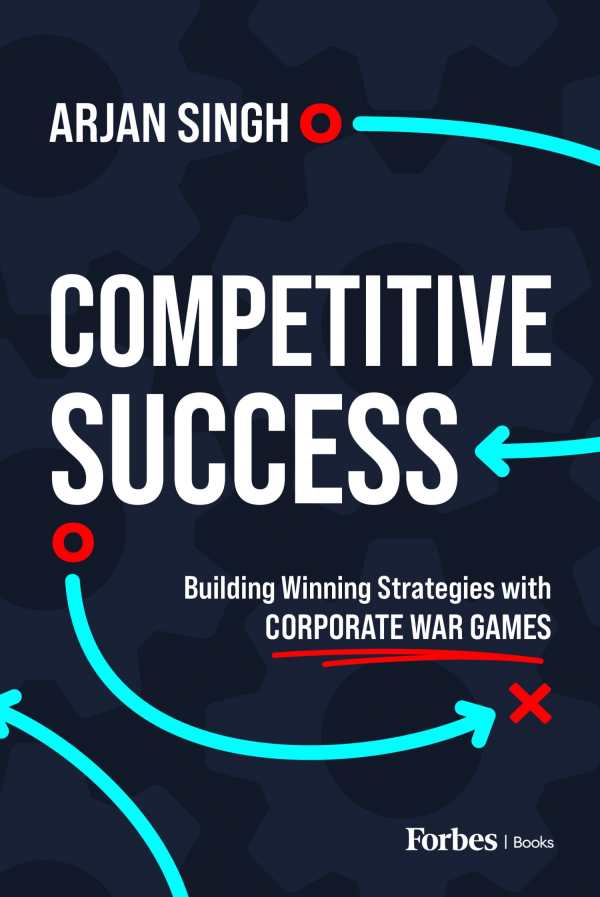Competitive Success
Building Winning Strategies with Corporate War Games
Demonstrating the benefits of corporate war games through written and visual media, Competitive Success is an innovative business guide.
Arjan Singh’s Competitive Success is an insightful guide to using war-games techniques in corporate strategic processes.
Introducing war gaming as a common strategy employed by military leaders to predict as many outcomes as possible by creating artificial scenarios that can be explored in a low-risk environment, the book proposes that corporations should adapt similar strategies. It calls them useful for preparing for potential challenges and unknown variables. Acknowledging that strategic planning is not itself a fresh business concept, the book details how war gaming differs from other forms of corporate planning: traditional planning methods, it says, often utilize a top-down approach and limit collaboration, while war-game techniques encourage cooperative environments and make space for dissenting opinions.
The book demonstrates the benefits of conducting corporate war games via personal examples. Singh, a university professor and corporate consultant, shares illustrative anecdotes from his working life alongside instructions for conducting war games, from the planning stages to postgame analysis. For example, the book includes an in-depth overview of a war-gaming session done for travel companies, with explanations of how the process was implemented, who was involved, and the resulting outcomes. Supportive visual aids and worksheets are used to complement such instructions. To illustrate the differences between three types of war games, for example, the book includes a bar graph that shows how war games that are more tactical in nature involve known variables and become more strategic as unknown elements and scenarios are taken into account. Calls to action, such as pointing out where to access tools to use in war-gaming sessions, also bolster the book’s effectiveness.
Although the book does an able job of demonstrating the benefits of corporate war games through both written and visual media, its efforts to highlight the weaknesses of alternative forms of business strategies are less convincing. It includes examples of companies that did not employ a war-game strategy in their decision-making, but there is not enough information to showcase why forgoing such strategies was detrimental. For example, CNN’s unsuccessful attempt to launch its own streaming service is held up as evidence of its failure to use the war-games strategy, but there isn’t thorough information on why their approach failed; instead, the book appears to make unsubstantiated assumptions about the company’s planning process. This lack of in-depth analysis of other forms of corporate strategic planning detracts from the book’s otherwise comprehensive overview of the benefits of conducting war games.
Still, Competitive Success is an informative business book that demonstrates the benefits of using war games to build effective business strategies.
Reviewed by
Gail Hoffer-Loibl
Disclosure: This article is not an endorsement, but a review. The publisher of this book provided free copies of the book and paid a small fee to have their book reviewed by a professional reviewer. Foreword Reviews and Clarion Reviews make no guarantee that the publisher will receive a positive review. Foreword Magazine, Inc. is disclosing this in accordance with the Federal Trade Commission’s 16 CFR, Part 255.

